#kenya regiment
Text
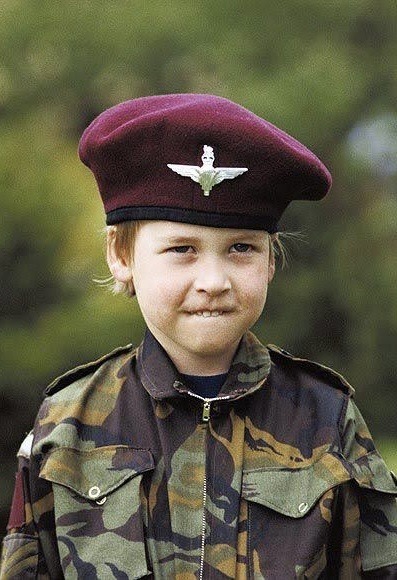
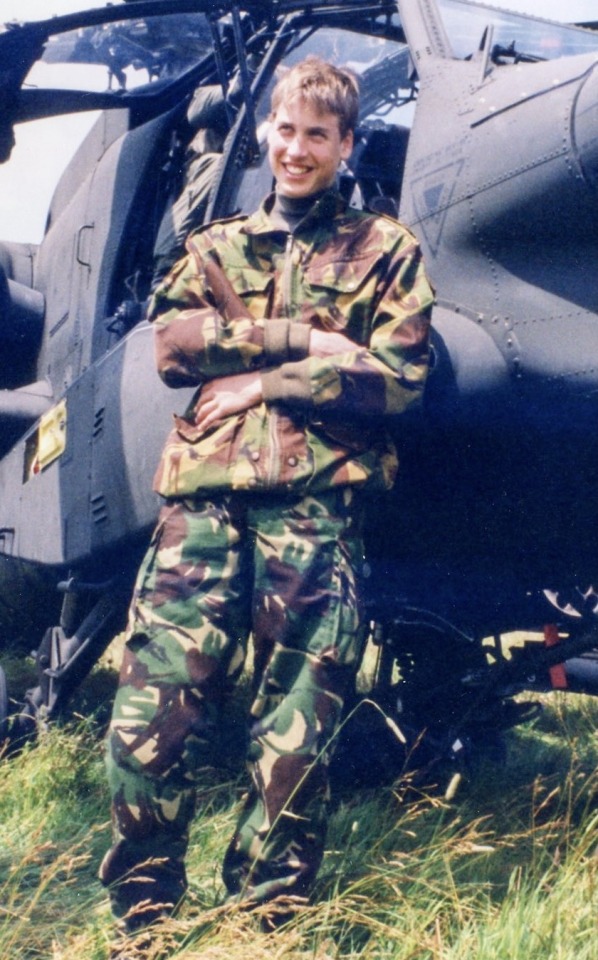
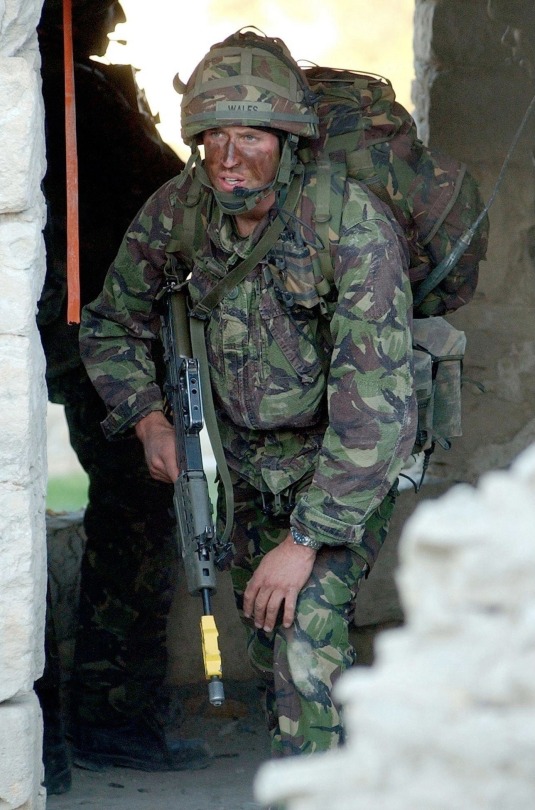


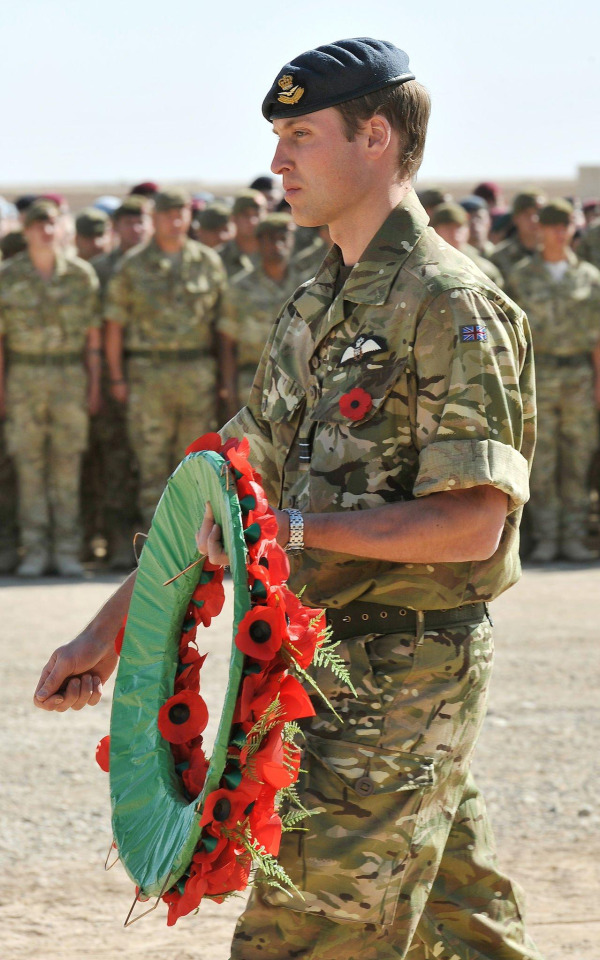
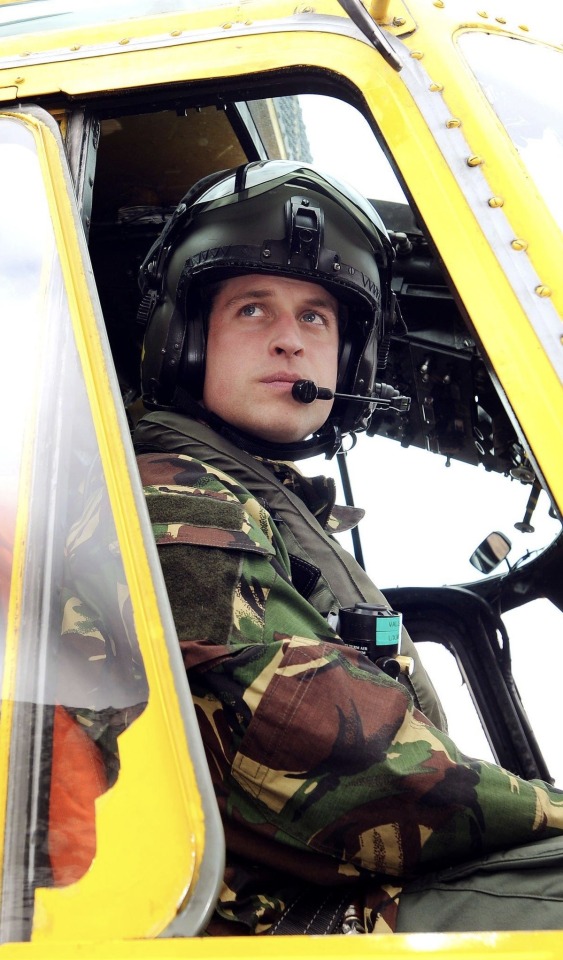

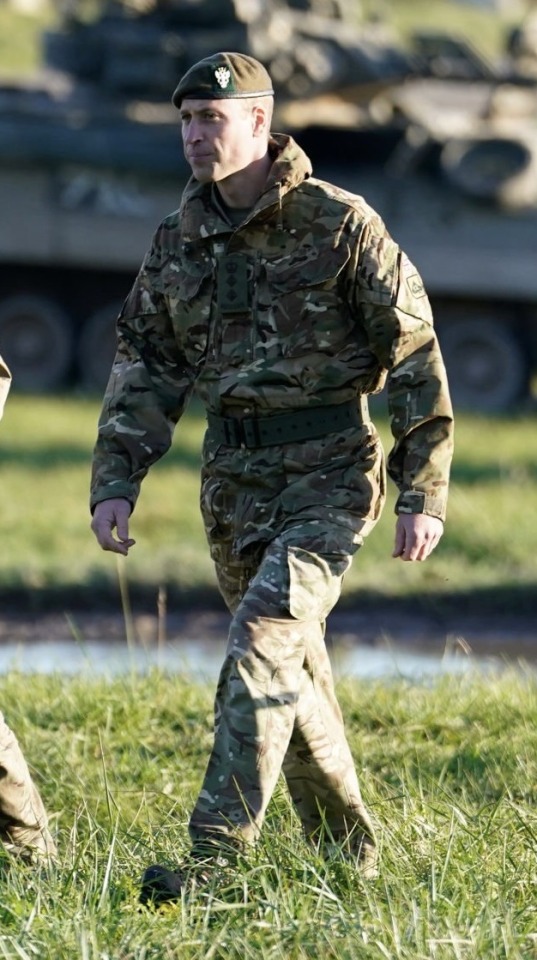
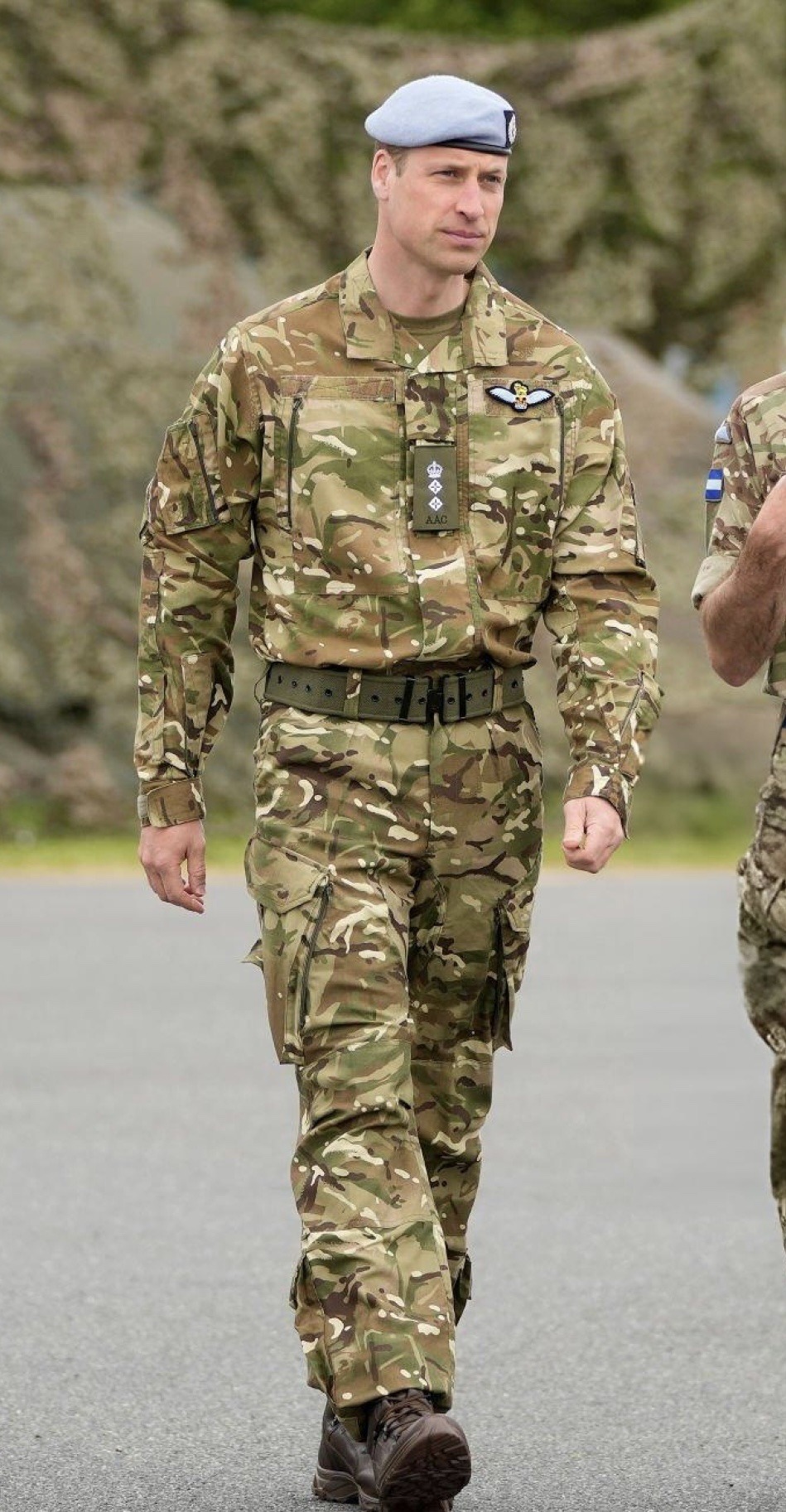
WHAT WILLIAM WORE: FATIGUES 🪖
1986: Wearing the uniform of the Parachute Regiment during a photocall in the garden of Highgrove House
1999: Visit to the Army Air Corps
2006: Army training exercise in Cyprus
2007: Visit to HM Naval Base Clyde in Helensburgh, Scotland (in his role as Commodore-in-Chief Scotland and Submarines)
2007: Visit to the 1st UK Armoured Division in Sennelager, Germany
2010: Remembrance Day ceremony at Camp Bastion in Afghanistan
2011: RAF training exercise at Holyhead Mountain in Anglesey, North Wales
2018: Visit to the British Army Training Unit in Kenya
2023: Visit to the Mercian Regiment at Salisbury Plain, England (in his role as Colonel-in-Chief of the regiment)
2024: Official handover of the role of Colonel-in-Chief of the Army Air Corps at the Army Aviation Centre
127 notes
·
View notes
Text
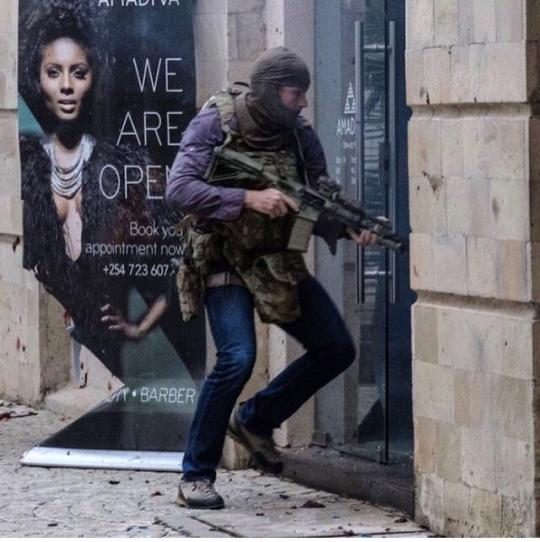
A lone member of 22 SAS Regiment enters the Dusit D2 Hotel in Nairobi, Kenya, during a terrorist attack. 15 Jan 2019
48 notes
·
View notes
Text

Although there was never any such phenomenon as Whittakermania, Roger Whittaker, who has died aged 87, built a huge international following in a career that spanned six decades. As the Boston Globe noted of his stage performances: “No one gets high. No one gets hysterical with excitement. And yet Roger Whittaker is one of the most popular entertainers in the world.”
Whittaker’s smooth baritone voice and songs of love, loss and yearning endeared him to audiences worldwide. His best known songs, where his voice was invariably accompanied by keening strings, included 1969’s Durham Town (the Leavin’), I Don’t Believe in If Anymore (1970), which reached No 8 in the UK, The Last Farewell (1971, reissued in 1975 to become a Top 20 hit in the US and a chart-topper in 11 countries), and Wind Beneath My Wings (1982).
He also had a trademark whistling ability, which he used to perform The Skye Boat Song in a duet with Des O’Connor, reaching the UK Top 10 in 1986.
Though he did not rack up chart hits as prolifically as the Beatles or Abba, his frequent TV and live appearances made him a household name in many countries. In the mid-1980s, he was acknowledged as Germany’s most successful recording artist. He made several recordings in German, singing the lyrics phonetically since he could not speak the language.
He was never fashionable, but never out of fashion with his audience. When he recorded a song such as Green, Green Grass of Home, it lacked the drama of Tom Jones’s version and his treatment of Song Sung Blue was homelier and more avuncular than Neil Diamond’s original, but it all became Whittaker music.
He liked to say he represented the “silent majority”. He defined this as “the kind of person who when he marries becomes a parent and a taxpayer and devotes himself to bringing up his children properly – all in all, a pretty straight-down-the-line guy”.
In the 70s, when rock music was dominating the record industry, Whittaker was dropped by his label, RCA, despite the fact that he had sold several million discs. He decided to market his 1977 album, All My Best, on TV. “I was the first act to go on TV with records,” he said. All My Best sold nearly 1m copies.
Born in Nairobi, Kenya, he was the son of Vi (nee Showan) and Edward Whittaker, who had owned a grocery shop in Staffordshire, but moved to a farm near Thika after Edward sustained serious injuries in a motorcycle accident and had been advised that a hot, dry climate would aid his recuperation.
Edward developed a new grocery business, while Vi worked as a teacher. Roger, who could speak Swahili before he learned English, attended the Prince of Wales school (now Nairobi school). He had begun learning the guitar at seven.
After school, where he had sung in the choir, he was called up for national service. He was posted to the Kenya Regiment, and for two years was involved in fighting the anti-colonial Mau Mau rebels. He subsequently attended the University of Cape Town to study medicine, but after 18 months he left and trained to be a teacher.
In 1959 he moved to Britain and enrolled at Bangor University in north Wales, where he studied zoology, biochemistry and marine biology. He also began to make his first moves into music, playing gigs to earn some cash and recording songs on flexi discs distributed with the university newspaper.
These provoked interest from Fontana records, and in 1962 his first single releases were The Charge of the Light Brigade and Steel Men.
He played concerts in Northern Ireland and appeared on the Ulster TV show This and That, and his career developed with constant touring around Britain.
“I learned how to entertain in the clubs of the north-east of England, the working men’s clubs where the miners go,” he said. In 1964 he married Natalie O’Brien.
By 1968 he was touring internationally and even had a TV showcase in the Soviet Union. At the 1968 Knokke song contest in Belgium, Whittaker performed If I Were a Rich Man, from the musical Fiddler on the Roof, and his own whistling composition, Mexican Whistler, helping Britain to win the competition, and both tunes were hits in France, the Netherlands and Belgium. In 1969 he scored his first UK Top 20 hit with Durham Town (the Leavin’), which reached No 12. Its easy-listening mixture of sentimentality and nostalgia, with its mournful references to war and bereavement, was typical of Whittaker’s work.
He revisited his African background in the documentary film Roger Whittaker in Kenya: A Musical Safari (1982), and in 1986 he published his autobiography (written with his wife), So Far, So Good. Three years later, he received the news that his parents had been attacked by a gang of robbers in Kenya, leaving his father dead and his mother brutally beaten. She subsequently moved back to Britain.
Outside music, Whittaker had a shrewd eye for antiques. His collection of paintings, furniture and works of art was auctioned by Sotheby’s in 1999 for more than £1m, at the same time as he sold his Herefordshire home and moved to Essex. Latterly he lived in the south of France.
He is survived by Natalie and by their five children, Emily, Lauren, Jessica, Guy and Alexander, 12 grandchildren, two great-grandchildren and his sister, Betty.
🔔 Roger Henry Brough Whittaker, singer and songwriter, born 22 March 1936; died 13 September 2023
Daily inspiration. Discover more photos at Just for Books…?
13 notes
·
View notes
Text
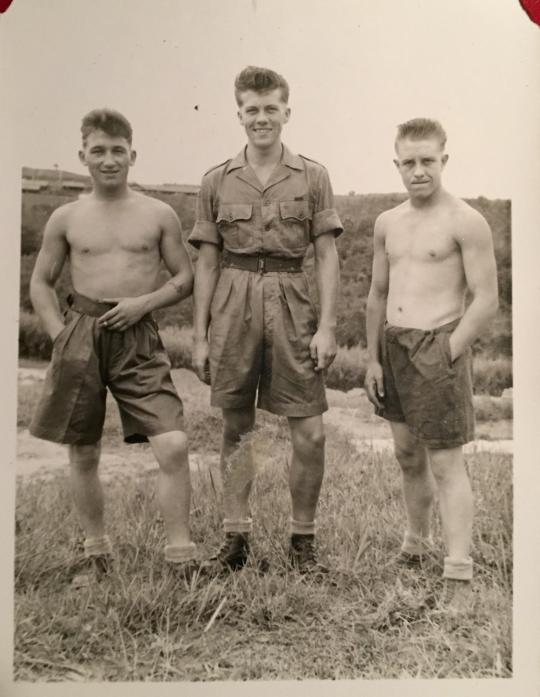
Queens Royal Regiment, Kenya 1956
20 notes
·
View notes
Text
A Deadbeat's Journal
Hey readers, This is something small I concocted whilst studying and I thought why not . It's been a while since I wrote and an even longer while since i had fun with it so I hope to improve my skills with this fic
Reader is black and the setting is based in Mombasa, Kenya
A Jotaro Kujo x BlackfemReader fic
February 5th 20XX,
At 7 I was up , dusting the crevices as I had cleaned the previous day, and by 8 I was running down to the beach, enjoying the salty smell of the Indian Ocean coupled with observing people slowly opened their wooden stalls and the beach cleaners attempt at sweeping the sand in the tarmac entrance . I only jogged to see the view to be honest, it’s easily the most beautiful sight to see in the morning.
When I got back, I made breakfast for the both of us .The lazy snob woke up at nine to do absolutely nothing but thank me for breakfast and keeping the area clean. Just to be spiteful, I left him with one less mandazi than the usual 10 . As I begin washing my dishes I hear his baguette-like feet thumping about and I know the big ,not-so-friendly, giant is up and ready to do his gruesome weightlifting regiment today . I made a snide comment the other day on how his calves don’t match his upper body and he decided to up the ante and increased leg day to two consecutive days in a row . He can't even let me have this one thing to bully him over .
Our conversations are short and today’s was no different
“Mornin’ “
“Good Morning Jotaro , I left the mahamri and mbaazi in the microwave so that it doesn’t get cold. Your tea is in the white thermos, the other one stopped being useful so I bought another “
“Thanks”
“Would you like anything for supper , lunch will be yesterday’s leftovers”
“Chapati and Beans “
“OK’
He should have chosen something easier to cook but I guess I turned to his little maid since he so graciously gave me a place to stay after all that happened ,therefore the least I can do is help around the house and be his personal maid and chef. He was never into Swahili and MIddle Eastern fusion cuisine so seeing him enjoy the meals I make proves just how great of a cook I am. Cooking everything from scratch took me five hours and by two I was done.
This is usually how my days go , except on Friday when I clean the apartment and on Saturday when it's laundry day my days are fairly mundane. Jotaro leaves the house at twelve and returns till seven when he sits in the dining area to eat his supper hence the reason why today I was in my best behavior , no rude commentary on anything he is doing.
I decided to pop the question that has been on my mind since last week, When he arrived , i set the table for him as he freshens up and i think he noticed my subtle irregularities because all he did was cock an eyebrow at me when i sat at his left but still played pretenses in spite him knowing that I hate being upfront.
“How’ve you been?”
“Good . How was work?”
“Interesting enough, I finally got the grant I was interested in.”
“That’s exciting . Congratulations , what’s it about ?”
Now not only was he confused, he was straight up baffled at the sudden interest in his work
“Last time I checked , you didn't even think marine biologists were ‘contributing anything to society’ your words verbatim.”
He said with a slight smirk , as though the words at the time brought him great amusement .
“I’ve had an epiphany,''I replied.
“And pray tell does that epiphany have to do with a fixation you have had as of late.”
I hate that he always uses the phrase ‘fixation’ as though I am incapable of having long term interests, like I'm some sort of child.
“First of all , it’s not a fixation , Its a solution to a problem that has been plaguing me ever since I moved in with you’
“Which is ?”
As of this point he’s intrigued , this is the longest conversation I’ve had with him since moving in and I’ve never asked him for anything. I needed to sell this idea well.
“I’m lonely , Can I get a cat?” I pleaded.
“Have you been taking your meds regularly?”
“I have a timer just for it”
“Is your screen time above the recommended time ?“
“I’ve only been using my phone for two hours straight , with minor fluctuations.”
“Do you regularly update your mom on your progress?
“Yes Jotaro , I’ve been doing everything perfectly. I read instead of watching netflix and I exercise regularly . Isn't that enough?”
“y/n what you are asking me is to allow you to have a pet and based on how you are eagerly talking about this, it seems that you already have a cat in mind.”
“Not really, “ I said softly . Jotaro simply scoffed at the comment , rising from his chair to wash his dishes.
“Thank you for the meal, Y/n . Give me a day to think about it .”
And the conversation ended at that. See this is why I’ve been calling him names “Give me a day to think about it” , please, I know him like the back of my hand ,he’s going to say no, and then he’ll give me the same tired remark “We can have this discussion after a few months have gone by” like he’d even willingly want me to bring up the topic.
As the meme goes, “ Tough times never last, only tough people do.”
masterlist next
Mahamri is a doughy deep fried bread that is airy. It can be eaten as a stand alone but ideally is eaten with something stuffed in it like mbaazi which are pigeon peas that are slowly boiled then fried with onions , seasonings and coconut cream . Jotaro is eating 10 cause he’s a big boiiii
10 notes
·
View notes
Text
Random Thought
For no apparent reason, I felt like infodumping about one of my favorite interesting historical figures most people haven't heard of, Col. John Henry Patterson, whom I learned of many years ago via reading a slim biography entitled The Seven Lives of Colonel Patterson by Denis Brian.
Anyways.
Col. Patterson was an Irish Protestant who joined the British Army and, after serving in India, where he gained a reputation as a tiger-hunter, was placed in charge of getting a railroad bridge built in what is now Kenya in 1898. This project immediately went to hell because not one, but two larger-than-usual lions in the area took up man-eating at the same time (killing possibly over a 100 people), and the workers understandably lost their shit, and also started blaming him for it; supposedly some of them openly talked about killing him in hopes that the lions were evil spirits or something who'd be appeased. So, Patterson proceeds to putt his own life on the line, and hunts down personally killed both lions, causing the workers to do a complete 180 on him.
He then wrote a book about the experience which no less a personage than Theodore Roosevelt called some of the best adventure writing he ever read, and inspired a number of films, including Bwana Devil, the first ever 3-D film.
Then, he serves a tour in the Second Boer War and is awarded a DSO. He is then called up again, and arrives just after the war ends in 1902
Then, in 1906 he discovers a new sub-species of eland.
He was subsequently appointed as a Game Warden, in which capacity, in 1909 (I think?) he got involved in a scandal that inspired the Earnest Hemingway story "The Short Happy Life of Francis Macomber".
In 1913, he joined the Ulster Volunteers, commanding a regiment in West Belfast and participating n the Larne gun-running.
When WWI broke out, he was placed in command of the Zion Mule Corps, which served with honor in the Gallipoli Campaign. When the Jewish Legion was formed, he took command of it as well, and proceeded to destroy his career by fighting against anti-Semitic superiors and peers to ensure his men were treated fairly, and came to be considered a personal friend of several of them, including Ze'ev Jabotinsky. As the veterans of the Legion formed the core of the Haganah, which eventually became the Israeli Defense Force, he is to this day considered, quoth former Israeli Prime Minister Benjamin Yetanyahu, "the godfather of the Israeli army". Also, he was the actual godfather* of Bibi's older brother Yoni, the sole casualty of the raid on Entebbe, who was actually named after him.
He then proceeded to spend most of the rest of his life as an advocate for Zionism, routinely traveling around the USA giving talks about it, except for a brief period during WWII, when he had to stop because he couldn't keep himself from talking about how shitty Britain was treating the Jews of Palestine, and Americans didn't want to hear someone talking smack about their ally while there was a war on.
*Well, OK, Jews obviously don't have godparents. He was presumably kvatter at the circumcision feast, the closest equivalent.
3 notes
·
View notes
Text
Events 8.20 (after 1930)
1938 – Lou Gehrig hits his 23rd career grand slam, a record that stood for 75 years until it was broken by Alex Rodriguez.
1940 – In Mexico City, exiled Russian revolutionary Leon Trotsky is fatally wounded with an ice axe by Ramón Mercader. He dies the next day.
1940 – World War II: British Prime Minister Winston Churchill makes the fourth of his famous wartime speeches, containing the line "Never was so much owed by so many to so few".
1940 – World War II: The Eighth Route Army launches the Hundred Regiments Offensive, a successful campaign to disrupt Japanese war infrastructure and logistics in occupied northern China.
1944 – World War II: One hundred sixty-eight captured allied airmen, including Phil Lamason, accused by the Gestapo of being "terror fliers", arrive at Buchenwald concentration camp.
1944 – World War II: The Battle of Romania begins with a major Soviet Union offensive.
1948 – Soviet Consul General in New York, Jacob M. Lomakin is expelled by the United States, due to the Kasenkina Case.
1949 – Hungary adopts the Hungarian Constitution of 1949 and becomes a People's Republic.
1955 – Battle of Philippeville: In Morocco, a force of Berbers from the Atlas Mountains region of Algeria raid two rural settlements and kill 77 French nationals.
1960 – Senegal breaks from the Mali Federation, declaring its independence.
1962 – The NS Savannah, the world's first nuclear-powered civilian ship, embarks on its maiden voyage.
1968 – Cold War: Warsaw Pact troops invade Czechoslovakia, crushing the Prague Spring. East German participation is limited to a few specialists due to memories of the recent war. Only Albania and Romania refuse to participate.
1975 – Viking program: NASA launches the Viking 1 planetary probe toward Mars.
1975 – ČSA Flight 540 crashes on approach to Damascus International Airport in Damascus, Syria, killing 126 people.
1977 – Voyager program: NASA launches the Voyager 2 spacecraft.
1986 – In Edmond, Oklahoma, U.S. Postal employee Patrick Sherrill guns down 14 of his co-workers and then commits suicide.
1988 – "Black Saturday" of the Yellowstone fire in Yellowstone National Park
1988 – Iran–Iraq War: A ceasefire is agreed after almost eight years of war.
1988 – The Troubles: Eight British soldiers are killed and 28 wounded when their bus is hit by an IRA roadside bomb in Ballygawley, County Tyrone.
1989 – The pleasure boat Marchioness sinks on the River Thames following a collision. Fifty-one people are killed.
1991 – Dissolution of the Soviet Union, August Coup: More than 100,000 people rally outside the Soviet Union's parliament building protesting the coup aiming to depose President Mikhail Gorbachev.
1991 – Estonia, occupied by and incorporated into the Soviet Union in 1940, issues a decision on the re-establishment of independence on the basis of legal continuity of its pre-occupation statehood.
1992 – In India, Meitei language (officially known as Manipuri language) was included in the scheduled languages' list and made one of the official languages of the Indian Government.
1993 – After rounds of secret negotiations in Norway, the Oslo Accords are signed, followed by a public ceremony in Washington, D.C. the following month.
1995 – The Firozabad rail disaster kills 358 people in Firozabad, India.
1997 – Souhane massacre in Algeria; over 60 people are killed and 15 kidnapped.
1998 – The Supreme Court of Canada rules that Quebec cannot legally secede from Canada without the federal government's approval.
1998 – U.S. embassy bombings: The United States launches cruise missile attacks against alleged al-Qaeda camps in Afghanistan and a suspected chemical weapons plant in Sudan in retaliation for the August 7 bombings of American embassies in Kenya and Tanzania.
2002 – A group of Iraqis opposed to the regime of Saddam Hussein take over the Iraqi embassy in Berlin, Germany for five hours before releasing their hostages and surrendering.
2006 – Sri Lankan Civil War: Sri Lankan Tamil politician and former MP S. Sivamaharajah is shot dead at his home in Tellippalai.
0 notes
Text
Lord McMillan's grave is dug, and thieves steal his corroded casket.

In Ol Donyo Sabuk, Machakos County, unknown individuals ransacked the rusty casket of philanthropist Sir William Northrup McMillan's grave and are currently the subject of an investigation by the police. Authorities said the burial chamber at the pinnacle of the Good old Donyo Sabuk was disrupted on June 12 for an obscure thought process.
The interference with the 98-year-old grave was confirmed when police arrived on the scene on Monday. The ransacked coffin was made of aluminum. The individuals who saw it said it was half eroded.
McMillan was a Kenyan settler, explorer, and philanthropist who was born in the United States.

At the age of 52, he passed away in Nice, France, in 1925.
His body was brought back to Kenya, and he was buried on the slopes of Ol Donyo Sabuk at a location he chose before he died.
After her husband's death, Lucie remained in Kenya and passed away in September 1957 in Nairobi.
They were not parents.
The McMillans were known for their generosity and supported the structure of the YMCA, Scott's Sanatorium and McMillan Remembrance Library close to the Jamia Mosque.
McMillan was born to William McMillan in St. Louis, Missouri, USA. His dad, an English subject brought into the world in Canada, moved to St. Louis in 1870, was naturalized as an American resident in 1874 and laid out the Missouri Vehicle and Foundry Organization.
James McMillan, who established the Michigan Car Company, was McMillan's uncle, and William and Grace McMillan, who immigrated to Canada from Scotland, were McMillan's paternal grandparents.
Subsequent to leaving school, he originally took a stab at farming in New Mexico prior to looking for additional undertakings abroad.
When McMillan was 29, his father passed away, leaving him a substantial estate.
He effectively put the cash in oil fields in Romania and elastic estates in Malaya, which made him considerably more well off. In 1902, he went on his first trip to Africa. He went to Ethiopia to see if the Blue Nile could be navigated, and for his efforts, Emperor Menelik gave him two medals.
On September 14, 1904, he made his first appearance in Kenya at Kilindini Harbour in Mombasa.
He established Juja Farm at Ol Donyo Sabuk in 1905 by purchasing 15,000 acres of land from the British Crown on a 99-year lease. On the property, he built a five-bedroom house.
The primary house was trailed by a three-room supervisor's cabin, a two-room home called "Lucie's bolthole", and three different cottages lodging the post and broadcast office, and spaces for escorts and grounds-keepers.
Electricity, running water, and a sewage system were all installed in the homes.
On his farm, he began cultivating sisal, flax, and maize.
He bought Ewart Grogan's famous house in Chiromo, Nairobi, in addition to his vast Juja farm property.
Additionally, he owned property in London's Berkeley Square. McMillan made the invitation on September 28, 1908, for U.S. President Theodore Roosevelt to be his guest when he traveled to East Africa at the end of his term.
On May 13, 1909, Roosevelt and his son Kermit arrived at Juja Farm after accepting the invitation.
In 1909, Roosevelt would rest and write a book titled Africa Game Trails several times at Juja Farm.
Roosevelt would also stay as a guest in McMillan's townhouse, which was behind the Norfolk Hotel, for a good portion of his time in Nairobi.
McMillan renounced his American citizenship during the First World War, enlisted in the British Army, and rose to the rank of Captain.
After that, he built a regiment on his own and used his properties, Juja Farm and Chiromo Farm, as homes for wounded soldiers. On February 6, 1918, he was knighted and given the KCMG for his work during the war.
As a member of the Legislative Council for the Ukamba constituency, he made his political debut.
Later in 1923, along with Master Delamere, he laid out the European and African Exchanges Association, to prepare African craftsmans to take Indians' places and put further Indian movement into East Africa down.
Read the full article
0 notes
Text
UK special forces operated secretly in Nigeria – Report
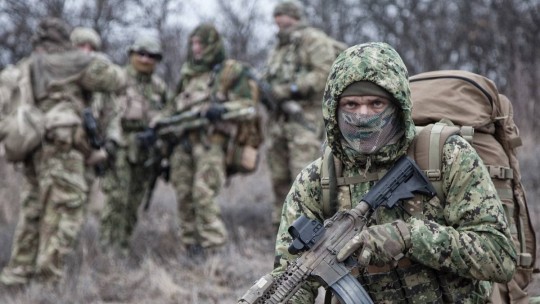
The British Special Air Service and the European country’s other special forces have operated clandestinely in Nigeria and 18 other nations over the past 12 years, research has revealed.
It could be recalled that in 2012, a group of SBS commandos attempted and failed to rescue a Briton and an Italian held by an Islamist group in Nigeria.
The Guardian UK reported that the British SAS also operated secretly in Algeria, Estonia, France, Oman, Iraq, Kenya, Libya, Mali, Cyprus, Pakistan, Somalia, the Philippines, Russia, Syria, Ukraine, Yemen and most recently Sudan.
The elite military units don’t have ministers publicly certifying their operations, thus, they operate covertly. But, based on media leaks, a research organisation called Action on Gun Violence has compiled a list of their operations from 2011, the online newspaper added in a May 23, 2023 report titled, ‘UK special forces have operated secretly in 19 countries since 2011,
It gives the impression that the prime minister and defence secretary frequently send personnel of the SAS, Special Boat Service, and Special Reconnaissance Regiment on dangerous operations, usually when Britain is not at war.
Special forces have been particularly active in Syria, with reports of them entering the country in 2012 to help rebel groups fighting against President Bashar al-Assad. They are also reported to have been sent in 2013 to identify military targets in advance of a bombing campaign that MPs ended up voting against.
But because of the fixation with secrecy, Matt Tonroe, a member of the SAS, was officially identified as a member of the Parachute Regiment when he was murdered in Syria in 2018. It was later discovered that he had actually been killed by his US colleague’s grenade, not an improvised explosive device.
Although Britain is not an official participant in the conflict, 50 members of the UK special forces were named as being present in Ukraine earlier this year in leaked Pentagon documents. The numbers for the US and France were listed as being 14 and 15, respectively. Nonetheless, their goal was left unstated.
The lengthy list of deployments, according to the report’s authors, occurred despite a lack of control. Even though special forces can be deployed without the Commons’ consent and are not subject to parliamentary committee investigations, etiquette requires that MPs vote to authorise a war.
After a terrorist massacre of 38 people, including 30 Britons, at a beach hotel in Tunisia in June 2015, it was once claimed that David Cameron, the country’s then-prime minister, had granted the SAS “carte blanche” to apprehend or murder Middle Eastern Islamic leaders.
“The extensive deployment of Britain’s Special Forces in numerous countries over the past decade raises serious concerns about transparency and democratic oversight,” said Iain Overton, the executive director of AOAV. “The lack of parliamentary approval and retrospective reviews for these missions is deeply troubling.”
Yet in March, a public investigation into claims that the SAS committed 54 summary executions in Afghanistan in 2010 and 2011—typically during night raids—began. Guys were taken away from their families and shot dead several times after being accused of producing a weapon.
Following the start of violence in Sudan in April, special forces helped evacuate two dozen British diplomats and their families to an airfield north of the capital when they were in danger of being attacked.
At the time, current defence secretary and Tory MP Ben Wallace commended the military effort. The operation, according to the Ministry of Defence, also included troops of the Royal Marines, the RAF, and the Parachute Regiment, although it omitted special forces.
Special forces routinely take part in both exfiltrations and hostage rescues. A couple detained in the Philippines was successfully released in 2019 in a mission that UK special forces assisted in preparing and for which it trained the country’s military. In 2012, a group of SBS commandos attempted and failed to rescue a Briton and an Italian held by an Islamist group in Nigeria.
The last time SAS members were referenced in the media was in 2014 when a tabloid claimed they were “on hand” to guard the safety of British athletes at the Sochi Winter Olympics.
Read the full article
0 notes
Text
Nothing, or Modernity and the Death of the Spirit
78,000 years ago, people hunted, gathered, and lived in caves like the Panga ya Saidi cave network in Kenya’s Rift Valley. 50,000 years ago, people hunted, gathered, and lived in caves like the Panga ya Saidi cave network in Kenya’s Rift Valley. 10,000 years ago, people hunted, gathered, and lived in caves like the Panga ya Saidi cave network in Kenya’s Rift Valley (Shipton et al). Clearly, for the vast majority of human history, social change happened at a glacial pace. Yet in the age of modernity, a few hundred years marked by transformative movements like the Enlightenment and the Industrial Revolution, human society changed drastically and rapidly in almost every way. Authors Herman Melville and Ernest Hemingway, in the 1800s and early 1900s respectively, each responded strongly to modernity in their works. Melville’s short story “Bartleby, the Scrivener: A Story of Wall Street” and Hemingway’s "A Clean, Well-Lighted Place" both reflect a sense that modernity has created a profound emptiness—a kind of death of the human spirit—and provided nothing to fill that hole nor to replace the human connections it has severed.
Both stories feature a character who feels very powerfully the effects of modernity and another character who has bought-in to the social order and doesn’t understand the problem. In Melville’s work, these are Bartleby and the narrator. Bertleby works as a scrivener, which is essentially a human copy machine. At first, Bartleby embodies the efficient mechanical production valued in American society, “an industrializing, urbanizing capitalist society that was becoming increasingly bureaucratized and enamored of regimented routine” (Urie). The narrator notes that Bartleby worked all day and all night, but while the narrator as his boss would benefit from Bartleby’s productivity, he can’t help but note that Bartleby did so “palely, mechanically” (Melville 6). After a few days, however, Bartleby begins to respond to his employer’s requests with the phrase “I would prefer not to.” In doing so, he asserts his own humanity. No machine can say it has a preference, only a person can. However, this act of defiance against the socioeconomic system of control only serves to reveal how drastically modernity has impacted the human spirit, as Bartleby is never capable of articulating what he would prefer to do instead. He doesn’t break free, rather, he simply stays in the office doing nothing all the time. It is as if the system has rendered Bertleby “a human automaton whose banal labor alienates him from his spiritual and emotional dimensions, thereby facilitating his alienation from society at large” (Urie). This alienation is highlighted when Bartleby ends up in jail, a place whose entire purpose is to remove people from society. He ultimately dies of starvation. Put another way, he dies of nothing.
In Hemingway’s piece, it is the older waiter who grasps this nothingness that a younger waiter who doesn’t yet understand. The older waiter relates to the deaf old man who drinks at their café until closing time and wants to explain to the younger waiter, but the disconnect between the two is so vast that the older waiter simply explains it to nobody with the younger waiter already gone. He says he is like “all those who need a light for the night," a light against the darkness that “was not a fear or dread. It was a nothing that he knew too well. It was all a nothing and a man was a nothing too” (Hemingway 3). In the end, he recites the Lord’s Prayer with the word nada inserted, nothingness where spirit used to be.
Works Cited
Gabriel, Joseph F. “The Logic of Confusion in: Hemingway's ‘A Clean, Well-Lighted Place.’” College English, vol. 22, no. 8, 1961, pp. 539-546.
Kuebrich, David. “Melville’s Doctrine of Assumptions: The Hidden Ideology of Capitalist Production in ‘Bartleby.’” New England Quarterly, vol. 69, no. 3, 1996, pp. 381–405.
Melville, Herman. “Bartleby, the Scrivener: A Story of Wall Street.” The Piazza Tales, 1856.
Hemingway, Ernest. "A Clean, Well-Lighted Place." 1933.
Shipton, Ceri, et al. “78,000-year-old Record of Middle and Later Stone Age Innovation in an East African Tropical Forest.” Nature Communications, vol. 9, no. 1832, 2018.
Urie, Andrew. “Melville’s Majestic Missive: ‘Bartleby, the Scrivener: A Story of Wall Street.’” New American Studies Journal: A Forum, vol. 71, 2021, doi:10.18422/71-04.
Weinstein, Cindy. “Melville, Labor, and the Discourses of Reception.” The Cambridge Companion to Herman Melville, edited by Robert S. Levine, Cambridge UP, 1998, pp. 202–23.
0 notes
Text
My Journey: Adventures of a Traveler in the Gurkhas
My Journey: Adventures of a Traveler in the Gurkhas
Adventures of a Traveler in the Gurkhas is the biography of a young hell-raiser, working his way through jobs and women. He joined the Kenya Regiment to embark on an erotic and colorful life in the Armed Forces, ending up as captain in the Gurkhas.Equally explicit experiences followed, as a gentlemen’s club manager, chauffeur to the high class visitors to London, wine merchant and bar…

View On WordPress
0 notes
Video
Interview with author John Elverson - It's all about the celebrity history from Yaya Diamond on Vimeo.
#blackwomenpodcasters #podcast #spotify
amazon.com/Serve-Russian-Empire-John-Elverson/dp/1952046149
John Elverson, the son of a British Army officer, was born in Kenya during the final years of the British Empire. He was educated at Cheltenham College and Reading University, where he studied agriculture. He worked for the Commonwealth Development Corporation on their cattle ranch in Botswana’s Kalahari Desert before joining a London software company developing business applications. After setting up his own software company and running it for a number of years he joined GE Caledonian, the Scottish arm of GE Aircraft Engines. Now retired and living in Scotland, he makes stoneware and porcelain pots and is researching his family history.
Book Summary :
This is the self-portrait of one man’s journey through life, schooled at two prestigious boarding schools in St Petersburg. He was chosen as one of two chamber pages to Princess Alix at her wedding to Tsar Nicholas II. Commissioned into the elite Egersky Life Guards Regiment, he paints a vivid picture of regimental life: the officers’ mess on Ruzovskaya Street, guard duty at the Winter Palace and Anichkov Palace, the Peter and Paul Fortress and at the Tsar’s coronation in Moscow, Military manoeuvres at Krasnoe Selo, and life in fashionable St Petersburg. In 1901 he attended the General Staff Academy, graduating in 1904 with the General Leontiev Prize for his thesis on strategy. The scene changes to the Far East where, as a junior staff officer, Boris took part in the war against Japan. After Russia’s defeat, he describes his provincial posting to a divisional HQ in Kiev before being invited to teach tactics at St Petersburg’s General Staff Academy. After obtaining his professoriate, Boris’ destiny is irrevocably changed with the start of the First World War. He describes his career against the backdrop of Russia’s fortunes, from the successful Galician campaign through to the disastrous retreat and eventual stalemate after the Kerensky Offensive and the Bolshevik takeover.
0 notes
Text
A History of the King's African Rifles and East African Forces :: Malcolm Page
A History of the King’s African Rifles and East African Forces :: Malcolm Page
A History of the King’s African Rifles and East African Forces :: Malcolm Page soon to be presented for sale on the gleaming BookLovers of Bath web site!
London: Leo Cooper, 1998, Hardback in dust wrapper.
Includes: Black & white photographs; Maps; Glossary; Appendices (5);
From the cover: Whatever one may think about the rights and wrongs of colonial rule, it is hard to deny that during the…

View On WordPress
#0-850-52538-1#battle colito#battle tug argen#books by malcolm page#british army#british colonial forces#british colonies africa#british military history#burma#campaigns burmese#east african artillery#first edition books#german east africa#italian east african empire#kenya regiment#kenyan history#king&039;s african rifles#lord alport#mad mullah campaign#martin bronkhurst#mau-mau#naval history#regimental histories#regimental history#royal east african navy#world war 1939 1945
0 notes
Photo

Cash, stamps and flags: how royal symbols will now change
When George VI died in his sleep at Sandringham during the early hours of 6 February 1952, his eldest daughter, Princess Elizabeth, then visiting Kenya with her husband, immediately became Queen Elizabeth II.
“The same simultaneous process will occur at the death of Queen Elizabeth and assumption of the throne by King Charles III,” Robert Blackburn, a professor of constitutional law at King’s College London, has told parliament.
However, after the Queen’s record-breaking reign, unpicking her name, image and iconography from the fabric of national life in the UK and across the Commonwealth will take much longer. These are some of the things that will need to change.
Flags
From the flags that fly outside police stations across the UK to the standard used on a naval ship when a general is onboard, thousands of flags emblazoned with EIIR will need to be replaced. Military regiments fly “Queen’s colours”, many of which are studded with a golden embroidered EIIR; the fire service ensign includes her initials and countries where the Queen remains head of state, including Australia, Canada and New Zealand, have what flag experts call “E flags” – personal flags for the Queen that are used when she is visiting.
It is possible that the royal standard – the quartered flag that flies wherever the monarch is in residence – could also change. The version used by the Queen includes one quarter representing Scotland (a lion rampant), one for Ireland (a harp), and two representing England (three lions passant), but none for Wales. It has been in use since long before Wales had its own national flag, recognised in 1959. The next monarch could incorporate a Welsh element.
Bank notes and coins
There are 4.5bn sterling bank notes in circulation with the Queen’s face on them, worth a combined £80bn. Replacing them with alternatives featuring the head of the new monarch is likely to take at least two years. When the latest synthetic £50 notes were issued, the process of recall and replacement took the Bank of England 16 months. When the Queen acceded to the throne in 1952, the monarch was not featured on the banknotes. That changed in 1960 when the face of Elizabeth II began to appear on £1 notes in an image created by the banknote designer Robert Austin, which some criticised as too severe. An image of the new monarch would be agreed with Buckingham Palace. The Queen’s head also features on some $20 banknotes in Canada, on coins in New Zealand, and on all coins and notes issued by the Eastern Caribbean central bank, as well as other parts of the Commonwealth.
Coin designs may be changed more slowly if historical precedent is followed: it was common to have different monarchs in your wallet as the changeover in coins happened organically rather than through recall.
National anthem
One of the most straightforward changes, in theory, will be switching the words of the national anthem from “God save our gracious Queen” to “God save our gracious King” – although it may take time before large crowds sing the new version with confidence. The anthem has been in use since 1745 when an early version ran: “God save great George our king, Long live our noble king, God save the king.”
Prayers
The Queen was the “defender of the faith and supreme governor” of the Church of England, and there are prayers to her in the Book of Common Prayer, which dates from 1662. One asks God to “replenish her with the grace of thy Holy Spirit, that she may alway incline to thy will, and walk in thy way”. These are expected to be amended to become prayers for the new monarch. This must be done by legislation or a royal warrant and was last done after the Queen Mother died. Priests are also able to amend the prayer for temporary use, which means prayers to the monarch that are commonly said in Sunday services and evensong can quickly be adapted to the new defender of the faith.
In services of holy communion contained in the common worship, there is a “collect” for the sovereign that asks God to “rule the heart of thy chosen servant Elizabeth, our Queen and governor, that she may above all things seek thy honour and glory”. This can be changed by the General Synod.
Royal arms
The familiar royal arms, which feature a lion and a unicorn rampant against a shield, are used widely on government premises and stationery, and any change would be costly, but it may not be necessary. It would need to change if the new monarch decided to represent Wales on the shield in line with any change to the royal standard.
Royal warrants
From the Angostura bitters company in Trinidad and Tobago to the Sussex farrier Zack Treliving, the Queen’s royal warrant currently applies to more than 600 businesses that have a history of supplying the royal household. Brands enjoying the use of the Queen’s arms on their marketing materials include Steinway pianos, Jordans cereals, Gordon’s gin and Swarovski jewellers, as well as plumbers, fence makers, sound engineers, hedge trimmers and flour millers. After the death of the Queen they stand to lose their status, unless they are granted a new warrant by her successor or another member of the royal family who becomes a grantor – potentially a new Prince of Wales. This may not happen quickly. When Prince Philip died, his royal warrant holders were given two years’ grace. A new monarch could decide to adjust the criteria to be met to become a royal warrant holder, for example by increasing the emphasis on sustainability.
Post boxes and stamps
Royal Mail postboxes bearing Queen Elizabeth’s royal cypher, ER, are unlikely to be removed. Some with King George VI’s GR cypher remain in use today, 70 years on. The Post Office, however, will change stamps, with a profile image of the new monarch being used.
Pledges of allegiance
MPs are not allowed to sit in the House of Commons, speak in debates, vote or receive a salary unless they pledge allegiance to the crown. Since 1952, the wording has been: “I (name of Member) swear by almighty God that I will be faithful and bear true allegiance to Her Majesty Queen Elizabeth, her heirs and successors, according to law. So help me God.”
MPs and peers will have to swear a new oath to her successor. New British citizens are also asked to swear to “bear true allegiance to Her Majesty Queen Elizabeth the second, her heirs and successors”, and the Home Office is likely to change that. Cubs and scouts promise to “do my duty to the Queen” while new members of the armed forces swear to “be faithful and bear true allegiance to Her Majesty Queen Elizabeth II, her heirs and successors”.
Commonwealth
The Queen’s death is a precarious moment for some of Britain’s wider Commonwealth realm, 14 countries of which recognise the monarch as their head of state. In many cases their constitutions state that the Queen, specifically, is the head of state. In these countries, constitutions will need to be amended to refer to her successor. In countries such as Jamaica, where there is a strong independence movement, and Belize, these constitutional changes will also require a referendum, according to Commonwealth experts. This is expected to bring about a moment of political peril for the new monarch, who, after Barbados became independent in 2021, could face the loss of another prominent part of the Caribbean Commonwealth.
Questions are also likely to arise in countries such as Papua New Guinea, Solomon Islands, Tuvalu, Antigua and Barbuda, the Bahamas, Grenada, Saint Kitts and Nevis, Saint Lucia and Saint Vincent and the Grenadines over whether the new monarch could lawfully appoint a governor general, if the relevant country’s constitution has not been changed to refer to the King, and continues to refer to the Queen as head of state.
The Queen’s name is also stitched into myriad other laws that will require redrafting, neither an easy nor a cheap process, especially for smaller countries that do not employ their own legislative drafters.
Among the constitutional monarchies, Australia, Canada and New Zealand have measures in place so the new monarch automatically becomes head of state.
Daily inspiration. Discover more photos at http://justforbooks.tumblr.com
18 notes
·
View notes
Note
How controversial were Irish volunteers in the British army? Because shows like Sharpe would have me believe every Irishmen was one drink away from gutting every Englishmen he saw. So I can’t imagine joining the army was a very popular or common choice
Popular media unsurprisingly overplays the antagonism. It's estimated that even today there are 4000 Irish citizens serving in the British Armed Forces, and 40% of the Irish Guards come from the Irish Republic. It should be noted that actual Irish Defence Force active personnel number 8,751. One article claims a citizen from the Irish Republic joins the British Army on average every four days.
My favourite story related to this is the account of a massive brawl that broke out between an Irish regiment and a Scottish regiment in the British Army both stationed in Kenya, triggered by antagonism between Celtic supporters in the former and Rangers supporters in the latter.
16 notes
·
View notes
Text
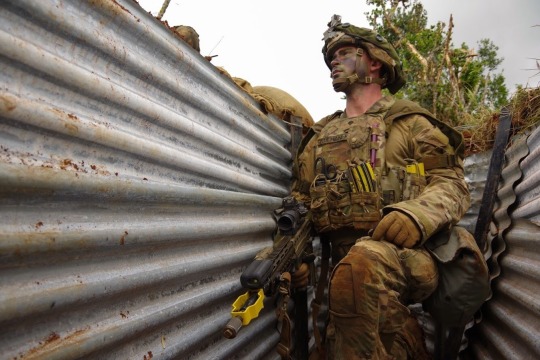
A paratrooper from 508th Parachute Infantry Regiment during exercise Operation Askari Storm in Kenya.
Photo by SPC John Lytle (2018).
25 notes
·
View notes